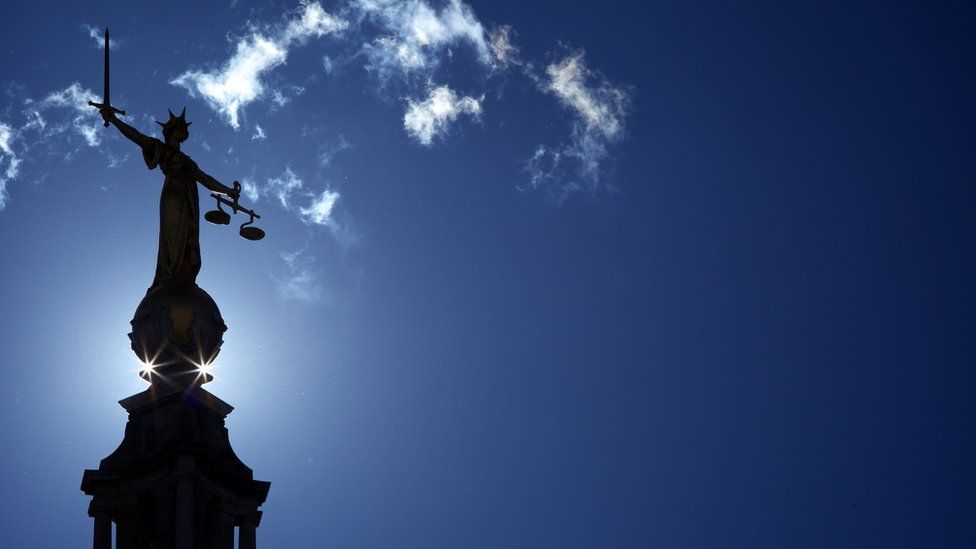Solicitors' pay deal 'fatal blow' to justice, says Law Society
- Published

Criminal solicitors are predicting courts "chaos" after a government pay settlement fell short of what ministers were advised to give the profession.
The Ministry of Justice says that it is pumping an extra £85m into criminal legal aid to better fund solicitors as part of a continuing review.
But the Law Society, representing all solicitors, said the new funding amounted to a "fatal blow" to justice.
The funding comes weeks after a more generous deal to criminal barristers.
Criminal legal aid is the public funding that pays for the vast majority of prosecutions because so few defendants can afford to pay for a solicitor themselves.
Under the law, everyone is entitled to a fair trial, and legal aid ensures access to expert legal advice to help make that possible.
Last December, the government's own independent review told ministers that legal aid rates had been frozen for so long they had to immediately find at least £135m to inject into the system - effectively a 15% rise for criminal solicitors and the barristers who appear in courts.
On Wednesday, ministers announced £85m in increased fees for solicitors - and official documents show that represents an across-the-board increase of 11%.
Within that settlement, the historically lowest-paid solicitors who work at police stations will get a 30% increase. Lawyers working on the most complex crimes in Crown Courts will receive 4% - although ministers say there will be further reforms to how they are paid in 2024.
'Wrong decision'
Justice Secretary Dominic Raab said: "We are reforming criminal legal aid so our lawyers are fairly paid for the vital work they do, delivering high-quality legal support for those who need it.
"We have taken on board the recommendations of the independent review and are modernising the system to deliver justice for victims now and in the future."
But the Law Society predicts up to 150 firms nationwide, employing nearly 700 solicitors, are likely to quit criminal work because their businesses are increasingly unviable.
"Dominic Raab has made the wrong decision," said Lubna Shuja, the society's head.
"Instead, he is imposing a real-terms cut on fees that have been frozen since the 1990s. Numbers of duty solicitors and criminal legal aid firms continue to fall at an alarming rate - with several police station schemes on the verge of collapse."
Earlier this year, barristers launched strikes after Mr Raab refused to pay them what the Ministry of Justice's independent review had recommended.
The strikes were suspended in October after Mr Raab's briefly-appointed successor, Brandon Lewis, agreed a deal in line with the review's findings.
Following his reappointment, Mr Raab told MPs he stood by his earlier decision not to give in to the barristers.
It is not clear how solicitors who do not want to leave criminal work will respond.
But Ms Shuja said:"Having seen that direct action gets results, the response from some of our members may be to resort to disruptive tactics."